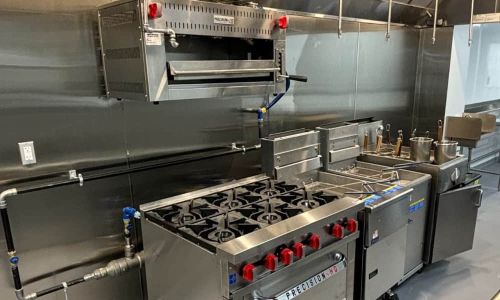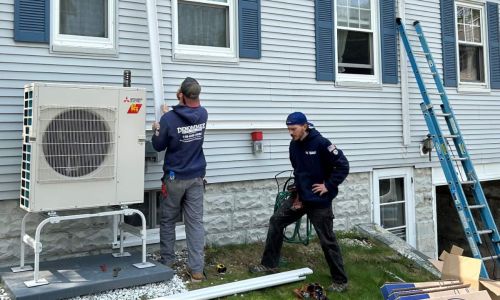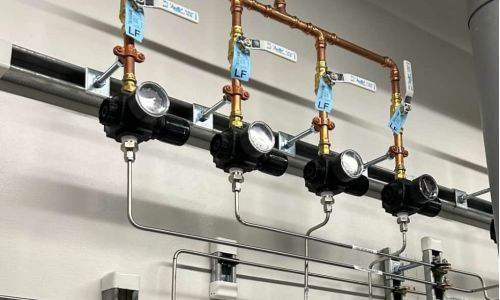Gas Furnace vs Heat Pump: Which Heating System Is Right For You?
While each heating source has pros and cons, it can be tough to decide which is a better option for your home. Read on to understand some of the differences.
A heat pump uses the outside air to heat a home in winter and cool it in summer. Basically, that means your heat pump will act as an air conditioner when it’s hot and a heater when it’s cold outside — making heat pumps a versatile product. In addition to the versatility of heat pumps, they are also energy-efficient. Think of a heat pump as a heat transporter constantly moving warm air from one place to another, to where it’s needed or not needed, depending on the season. In the winter, the pump extracts heat from the outdoor air or ground and distributes it to your home. In the summer, hot air from inside your home is removed — creating a cooler indoor environment.
A furnace converts fuel into cozy heat delivered throughout your home. All furnaces consist of four main components: 1) burners that deliver and burn fuel, 2) heat exchangers, 3) a blower, and 4) a flue that acts as an exhaust for gaseous by-products. You can add air conditioning via condenser, or heat pump, to a furnace for year round comfort.
Here's a breakdown of the key differences to help you make an educated decision between installing a gas furnace and an electric heat pump:
- Energy Source
Gas Furnace: Runs on natural gas (or propane in some areas). It burns gas to produce heat, which then warms your home.
Heat Pump: Uses electricity to transfer heat from outside to inside your home. It works like an air conditioner in reverse. In the winter, it extracts heat from the outside air (even when it's cold) and pumps it indoors.
- Efficiency
Gas Furnace: Generally less efficient than a heat pump, especially in moderate to mild climates. Gas furnaces typically have an efficiency rating between 80% to 98%, meaning they waste some energy in the process of combustion.
Heat Pump: Highly efficient, with efficiency ratings often above 300%, meaning it moves more heat than the energy it consumes. However, its efficiency drops in very cold temperatures since there's less heat to extract from the outside air.
- Climate Suitability
Gas Furnace: Works well in cold climates where temperatures often drop below freezing. It provides consistent, reliable heat regardless of how cold it gets.
Heat Pump: Best for moderate climates (generally above freezing temperatures), as its efficiency drops in extreme cold. Some newer models, however, can operate efficiently in colder climates, though they may need supplementary heating.
- Upfront Cost
Gas Furnace: Typically has a lower upfront installation cost, depending on the size and complexity of the system. However, this can vary based on local energy prices and installation factors.
Heat Pump: The initial cost can be higher than a gas furnace, but there are potential savings over time due to lower operating costs.
- Operating Costs
Gas Furnace: Natural gas is usually cheaper than electricity in many areas, so operating costs can be lower for homes with natural gas.
Heat Pump: Operating costs can be higher than a gas furnace in areas where electricity is more expensive than gas. However, in milder climates, heat pumps often result in lower utility bills due to their efficiency.
- Environmental Impact
Gas Furnace: Burns fossil fuels, which produces carbon emissions and contributes to global warming.
Heat Pump: Environmentally friendlier, especially if you have access to renewable energy sources, as it doesn’t directly burn fossil fuels.
- Maintenance and Lifespan
Gas Furnace: Typically lasts 15-30 years with regular maintenance. It requires annual service to ensure safety and efficiency.
Heat Pump: Can last around 15 years but may require more maintenance since it's a dual-purpose system (heating and cooling). It can also be affected by outdoor temperatures, so the unit may wear out faster in harsher climates.
- Heating and Cooling
Gas Furnace: Solely designed for heating. You'll need a separate air conditioning system for cooling in the summer.
Heat Pump: Functions as both a heater and an air conditioner, making it an all-in-one solution for year-round comfort.
In a colder climate like ours in New England, and want reliable heating during extremely low temperatures, a gas furnace may be the better choice. If you want an energy-efficient system that both heats and cools, a heat pump might be the better option, especially if you're aiming for lower energy bills and a more environmentally friendly solution.
No matter the system—furnace or heat pump—our HVAC team of designers, installers and service techs are experts in ensuring home heating & cooling functions are properly set and maintained for maximum comfort and efficiency. Call us, or visit our website www.DenommeePlumbing.com to request a no-cost consultation and system quote.




